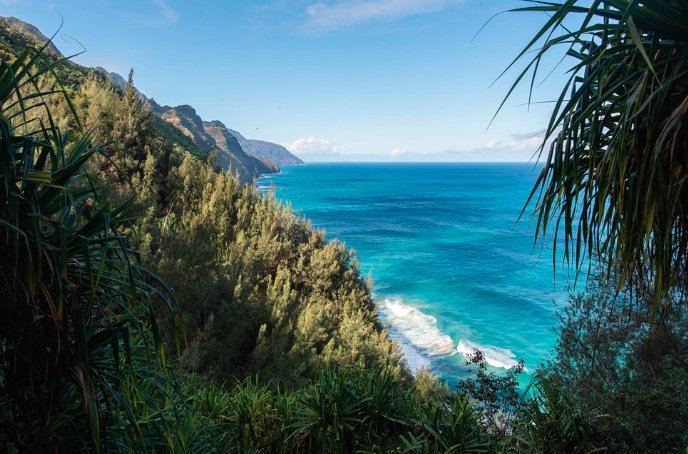Hawaii is one of the few states in the US that has not legalized recreational cannabis, despite having a medical cannabis program since 2000. However, this could change soon as lawmakers and the attorney general are pushing for a comprehensive bill that would allow adults 21 and older to possess, cultivate and purchase cannabis from licensed retailers.
Attorney General Proposes Draft Bill
The momentum for legalizing recreational cannabis in Hawaii gained a boost when Attorney General Anne Lopez unveiled a draft bill on Friday, November 20, 2023. The bill, which is 294 pages long, outlines a regulatory framework for the production, distribution and taxation of cannabis, as well as a social equity program to address the harms caused by prohibition.
The bill is modeled after Massachusetts’ legalization model, which Lopez said was “the most comprehensive and well-thought-out” among the states that have legalized cannabis. The bill would create a new agency, the Hawaii Cannabis Authority, to oversee the industry and enforce the regulations. It would also impose a 4.25% excise tax and a 10% surcharge tax on cannabis sales, with the revenue going to law enforcement, education and public health programs.
The bill would allow adults 21 and older to possess up to one ounce of cannabis and grow up to six plants at home, with a limit of 12 plants per household. It would also allow medical cannabis patients to continue accessing their medicine without paying taxes or fees. The bill would not provide for expungements of past cannabis convictions, but it would require a study on the feasibility and advisability of doing so by 2026.
Lawmakers and Advocates React to the Bill
The draft bill received mixed reactions from lawmakers and advocates, who praised some aspects of the proposal but also raised some concerns and suggestions for improvement. House Judiciary Committee Chairman David Tarnas said the attorney general did “a really good job pulling together all of the different input and providing a comprehensive bill”. He added that he was optimistic that the bill would pass in the 2024 legislative session.

Senate Commerce and Consumer Protection Committee Chairman Jarrett Keohokalole also expressed his support for the bill, calling it “the best version to date”. He said the bill addressed many of the issues that came up with previous legalization efforts, such as ensuring the safety and quality of cannabis products, protecting the medical cannabis program and preventing underage access.
However, some advocates were not satisfied with the bill, especially regarding its equity and justice provisions. Karen O’Keefe, director of state policies at the Marijuana Policy Project, said the bill “falls short when it comes to fostering equity and reparative justice”. She criticized the bill for ramping up criminalization in some areas, such as driving with an open container of cannabis or improperly storing cannabis products and plants. She also said the bill should include expungements and automatic resentencing for low-level cannabis offenses, as well as more funding and support for communities disproportionately impacted by prohibition.
Opponents Mobilize Against Legalization
While the proponents of legalization are working to refine and advance the bill, the opponents are also mobilizing to stop it. On Tuesday, February 8, 2024, a coalition of law enforcement officials, the Honolulu mayor and the prosecutor held a press conference to voice their opposition to legalization. They argued that legalization would increase crime, violence, impaired driving, youth use and mental health problems. They also claimed that legalization would not eliminate the illicit market, but rather create a dual system that would be hard to regulate and enforce.
The coalition urged the lawmakers to reject the bill and instead focus on other priorities, such as the COVID-19 pandemic, the economy and the environment. They also suggested that the issue of legalization should be decided by the voters, not the legislators. They said they would launch a public education campaign to inform the public about the harms of cannabis and the risks of legalization.
The Future of Legalization in Hawaii
The fate of legalization in Hawaii remains uncertain, as the bill faces both support and opposition from various stakeholders. The bill is expected to be introduced in the 2024 legislative session, which begins on January 17. The bill would need to pass both chambers of the legislature and be signed by the governor, who has not taken a clear position on the issue. Alternatively, the bill could propose a ballot measure that would let the voters decide on legalization in the 2024 general election.
If the bill becomes law, Hawaii would join 18 other states and the District of Columbia that have legalized recreational cannabis for adults. Hawaii would also become the first state in the Pacific region to do so, potentially influencing other nearby states and territories, such as Alaska, Guam and American Samoa, to follow suit. Legalization could also have significant economic and social benefits for Hawaii, such as creating jobs, generating tax revenue, reducing arrests and incarceration, and enhancing public health and safety.



